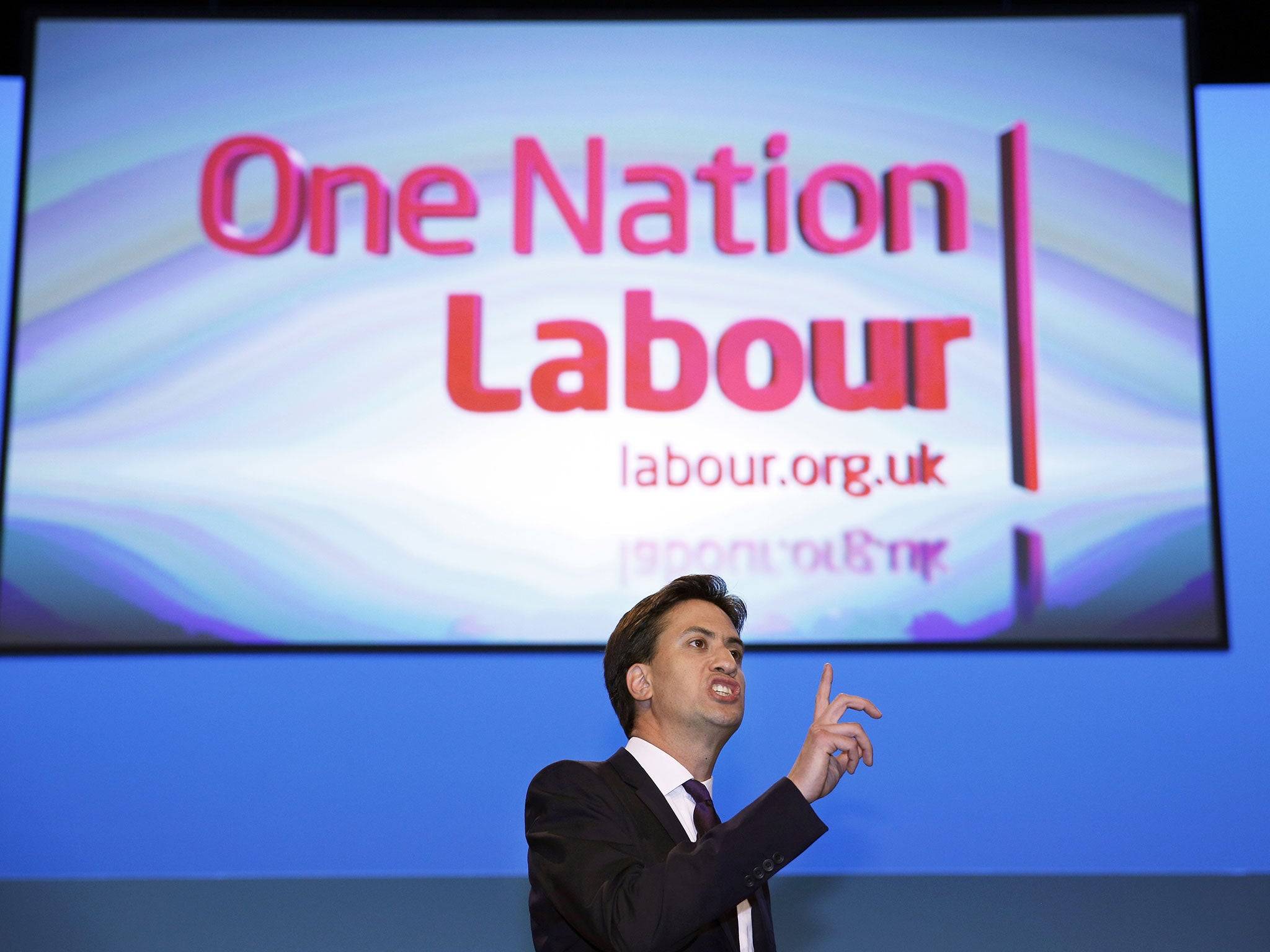Poll: Labour set to win the election - but people still don't like Ed Miliband
Drop in Tory support will fuel fears among its MPs that the party is experiencing a 'voteless recovery'

Labour is on course to win next year’s general election, even though a majority of people say that Ed Miliband deters them from voting for his party.
A ComRes survey for The Independent shows that the Conservatives have dropped to 27 per cent, their lowest in a poll for this newspaper since the 2010 election. The party is down three points on last month, while Labour, now on 33 per cent, is up one point. Ukip is down one point to 17 per cent, with the Liberal Democrats up one point to eight per cent and the Green Party up two points to seven per cent. If these findings were repeated at the election on a uniform swing, Labour would enjoy a majority of 74.
The drop in Tory support will fuel fears among its MPs that the party is experiencing a “voteless recovery” despite the improving economy.
Conversely, there will be relief in Labour circles that Mr Miliband’s unpopularity does not appear to be damaging the Labour brand as much as the Tories' hope. In a speech on Friday, he admitted his weakness on presentation, and argued that decency and substance mattered more than image and photo opportunities. But the move does not seem to have improved his personal standing.
Asked whether Mr Miliband puts them off voting for Labour at the general election, 54 per cent of the public agreed and 41 per cent disagreed. A third of Labour supporters (36 per cent) said the party leader put them off, as did 75 per cent of Tory supporters. But Liberal Democrat supporters were more divided, with 54 per cent saying that Mr Miliband put them off and 41 per cent that he did not.
Asked whether they believed what Mr Miliband says more than they believed David Cameron, only 32 per cent of the public agreed and 57 per cent disagreed. One in four Labour supporters (26 per cent) do not believe the party’s leader more than they believe Mr Cameron.
One in five (20 per cent) people said they would be more likely to vote Labour if Tony Blair were party leader, including one in eight Tory supporters (12 per cent) and one in 10 Ukip supporters (10 per cent). Three in 10 Labour supporters said that they would be more likely to vote for the party next May if Mr Blair were leader, but 69 per cent would not be. The former Prime Minister has a following among younger voters: 30 per cent of 18-24 year-olds and 23 per cent of 25-34 year-olds would be more likely to vote Labour if he were leader, compared to just 13 per cent of over 65s.
Labour’s pledge to stick within the Coalition’s spending limits for the 2015-16 financial year if it wins the election has not yet convinced the public. Asked if they believed that Labour would probably start increasing levels of government spending as soon as it got into power, 58 per cent agreed and 35 per cent disagreed. Some 58 per cent of Labour supporters expect the party to boost spending immediately.
Tom Mludzinski, head of political polling at ComRes, said: “This poll brings mixed news for Labour. Despite the six-point lead over the Conservatives, many voters are put off by Mr Miliband at the top of the ticket, causing some concern about how solid Labour’s lead is going into next year’s election.”
ComRes interviewed 1,001 GB adults by telephone between 25 and 27 July. Data were weighted to be demographically representative of all GB adults. Data were also weighted by past vote recall. ComRes is a member of the British Polling Council and abides by its rules.
Join our commenting forum
Join thought-provoking conversations, follow other Independent readers and see their replies
Comments
Bookmark popover
Removed from bookmarks